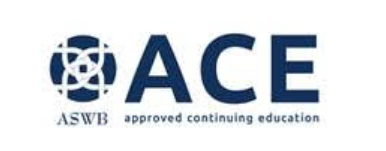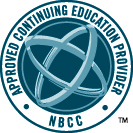Suggested Audience
Licensed Clinical Social Workers (LCSW), Licensed Social Workers (LSW), teachers, school counselors, student assistant coordinators, Certified Alcohol & Drug Counselors (CADC), Licensed Clinical Alcohol & Drug Counselors (LCADC), Care Managers, Children & Family Advocates, Licensed Professional Counselors (LPC), Healthcare Professionals and social work student interns.
We Provide Virtual and In-person Training
For more information on how to bring one or more of these dynamic training’s to your organization, school or conference event please give us a call at: (866) 312-6099 or click here to complete our Onsite Training Request form.
Continuing Education
Select courses offered by VIP Community Services provide continuing education credits, units and/or clock hours depending on which governing participants license is governed by. It is highly recommended that prior to taking any course(s) offered by VIP Community services, that you consult with your licensing board in your local jurisdiction to assure that course(s) meets their approval to apply credits, units and/or clock hours to your respective license renewal. When selecting a course to register for, please use our Continuing Education Course Approval Code Guide to determine which course(s) may apply to the renewing of your license(s).
Click here for more information on our Continuing Education guidelines.
Newly Added Courses (2024)
PDS-NE01: The Dynamics of Leadership for Healthcare Professionals
Frequently, individuals in direct care roles find themselves elevated to leadership positions (such as manager, supervisor, director, etc.) without actively seeking such roles. This can happen due to departmental or organizational restructuring, the retirement of a current leader, or requirements tied to grant funding. In this training session, we will identify the distinction between what it means to hold the title of “manager” versus functioning as a “leader.” We review essential skills and qualities associated with being an effective leader. Finally, a comprehensive framework for assessing the effectiveness of your preferred leadership style is provided.
PDS-NE02: Strategies for Supporting Student Homelessness
This training session is designed to provide educators, school staff, and community members with the knowledge, strategies, and resources to effectively support students experiencing homelessness. Participants will gain a deep understanding of the issue, its impact on students’ academic success, and the unique challenges faced by this vulnerable population.
PDS-NE03: Unveiling the Shadows: Domestic Violence & Human Trafficking Awareness & Prevention
Human trafficking continues to be a grave violation of human rights affecting millions around the world. The purpose of this training is to raise awareness around the prevalence of domestic servitude and violence against women and girls within the sex trade. Through interactive lecture and thought-provoking activities, participants will gain a comprehensive understanding of the various dimensions of human trafficking (a form of domestic and international violence), including its root causes, different forms, and the impact it has on individuals and communities. By engaging in this training session, individuals will be equipped with trauma informed best-practices and the necessary tools to support survivors of domestic servitude.
PDS-NE04: Building Healthy Relationships: Teen Dating & Violence Prevention
In this comprehensive training session, participants will delve into the crucial topic of building healthy relationships, with a particular focus on preventing teen dating violence and abuse. Designed for educators, mentors, and youth workers alike, this training aims to equip individuals with the knowledge, skills, and tools necessary to foster positive, respectful relationships and recognize and respond to signs of abuse.
PDS-NE05: Learning for Justice
During this two hour training session, the Learning for Justice framework developed by the Southern Poverty Law Center will be utilized to engage employees in practical skill building activities to enhance their capacity to effectively respond to acts of discrimination in the workplace. More specifically, we will discuss three primary response barriers to addressing workplace discrimination, examine common microaggressions that tend to show up in the workplace, assess participant’s conflict management styles and engage in collection action to address workplace discrimination.
CONTINUING EDUCATION COURSE
PDS-022: Designing Anti-racism Action Plans
This training provides participants with the building blocks for engaging in anti-racism advocacy on a personal and organizational level. An overview of an anti-bias framework will serve as the foundation for developing concrete steps, resources, timelines and accountability measures to engage in social justice activities geared towards eradicating racism in America. Anti-racism planning needs to be intentional, and it will take time and thoughtfulness. This course serves as a catalyst for ongoing anti-racist activism.
PDS-023: Understanding White Supremacy Culture
Diving into the work of racial equity requires that we deepen our understanding of how we learn, recognize, and affirm various realities. This training seeks to build collective and individual consciousness of White Supremacy Culture. Participants will develop a shared understanding of the characteristics and assumptions of white supremacy, ways in which it has manifested in each of us and begin constructing a different way of thinking and being.
PDS-024: A Strength-based Approach to Supporting LGBTQ+ Youth
LGBTQ+ youth are considered an at-risk demographic. With increased research on and advocacy for gender and sexual minority persons we have come to a deeper understanding of the unique challenges faced by queer and questioning adolescence. This training will explore a framework for understanding gender and sexuality, discuss identity development, and explore how to support LGBTQ+ youth. These things will be achieved in an educational environment that is safe and stresses progress, not perfection!
PDS-025: Understanding the Culture of Urban Poverty
The culture of poverty is a concept embedded in social theory that explains the cycle of poverty. Although the title of this training points to urban settings, the culture of poverty is based on the concept that the economically disadvantage possess unique value systems that shape characteristics, behaviors and attitudes of individuals and families regardless of geographic location. Poverty coupled with disparities associated with mental health and substance abuse treatment can create great challenges for individuals, families and communities. This training provides participants with a conceptual framework for understanding poverty to enhance knowledge, skills and best-practices for working with impoverished populations.
PDS-026: Raising Awareness in a Multi-cultural Workplace
Enhancing Cultural Awareness in a Multi-cultural Workplace is a training program crafted to elevate both self-awareness and cultural sensitivity. The modules in this training will underscore the influence of personal bias, perceptions, and stereotypes on cross-cultural working relationships, emphasizing their potential to hinder quality service delivery. Grounded in the Developmental Model of Intercultural Sensitivity (DMIS), an evidence-based framework for fostering cultural sensitivity and empathic engagement, the training will provide a foundation for intergroup discussions on to promote and preserve workplace harmony!
PDS-027: Understanding Childhood Trauma, Grief and Loss
Many children will experience trauma or the death of a loved one during their formative years and it manifests itself in a variety of different ways as everyone endures traumatic experiences differently. Research has revealed that adverse childhood experiences affect emotions, attitudes, social interactions and overall health outcomes. This training is designed to educate participants on the effects of childhood trauma, grief and loss. Participants will learn effective ways to support children & youth and cultivate a journey of healing from traumatic loss and grief.
PDS-028: Cultural Competence: A Determinant to Achieving Health Equity
What makes some people healthy and other people unhealthy? The range of personal, social, economic and environmental factors that impact health status are referred to as Determinants of Health1. This training focuses on social determinants of health, more specifically the social interactions that can influence health access. Lack of awareness regarding how health literacy, language variations, cultural norms and practices can create barriers to achieving positive health outcomes is explored. Best practices associated with how culturally competent behavioral health teams can assist individuals, families and communities in overcoming these barriers to maximizing behavioral health outcomes will be highlighted.
PDS-029: Conceptualizations of Power and Privilege
Explore the intricate dynamics of power and privilege in this thought-provoking training session. The course will navigate theoretical frameworks, historical perspectives, and contemporary issues to foster a nuanced understanding. Participants will develop the tools to recognize, challenge, and navigate power dynamics and privilege, paving the way for more inclusive and equitable environments. Join us on a journey of exploration and self-reflection as we unravel the layers of power and privilege shaping our world.
PDS-030: Promoting Diversity, Equity, & Inclusion in The Workplace
In the present multi-cultural landscape, organizations acknowledge the significance of optimizing the diverse talents within their workforce. Research indicates that workplaces characterized by diversity and inclusion tend to be more creative, productive, efficient, and successful in terms of service delivery and production. Attendees of this training will actively participate in self-reflection and discussions to grasp the profound impact of diversity and inclusion on work environments. The course offers employees the chance to delve into all dimensions of identity relevant to cross-cultural workplace settings and explores methods to cultivate inclusive working relationships, irrespective of factors such as race, age, sexual orientation, gender, and ethnic variations.
PDS-031: Breaking the Silence Depression and Suicide among People of African Decent
This is a training grounded in principles of empathic engagement and is intended to help participants gain a better understanding of the complex intersection of cultural stigma, religiosity and how a legacy of racism has contributed to treatment disparities for people of color. The presentation examines factors that contribute to the rising suicide and homicide rates of black men as well as protective factors that promote resiliency and connection.
PDS-032: Intimate Partner Violence (IPV) for Social Service Providers
This training explores IPV from a trauma focused lens. It explores types of violence, contributing factors of violence, trends in murder suicide rates among intimate partners with an emphasis on stalking and strangulation. The training session closely examines systemic supports to help, as well as protective factors that promote resiliency in the aftermath of IPV.
PDS-033: Trauma, Vicarious Trauma, Burnout and the Importance of Self Care
This training is designed to assist employees who work within high stress prone occupations gain a deeper understanding of trauma, signs and symptoms of vicarious trauma and burnout. As well as the importance of understanding allostatic load and its impact on our physical and emotional well-being. Practical tips for stress reduction and developing self-care plans are provided.
PDS-034: Avoiding Workplace Burnout - Strategies for Helping the Helping Professional!
In this training participants will learn techniques and skills to avoid burnout. Participants will gain insight to how compassion fatigue and vicarious trauma can impact job performance. Keys to maintaining a consistent self-care regime will be highlighted.
PDS-035: A Person-centered Approach to Working with LGBQTIA Individuals
Although there has been progress in awareness and acceptance of lesbian, gay, bisexual, transgender, queer, intersex and asexual (LGBTQIA) people in the United States, LGBTQIA individuals continue to face stigma and discrimination in the workplace. Federal, state and corporate policies aim to create a culturally-affirming and inclusive workplace for LGBTQIA individuals, however, fear of discrimination is a powerful force. This training aims to create a supportive environment exploring foundational concepts of terminology, legal protections and considerate communication. Participants will leave this session with the simple and effective strategies to foster an inclusive and non-discriminatory work environment for LGBTQIA individuals.
PDS-037: Services to Immigrants: Challenges, Opportunities, and Promising Practices
The purpose of this training is to provide an overview of the field of immigrant and refugee services. Course materials are designed to explore various facets of the migrant experience and offer insight into immigrant vulnerabilities and assets, as revealed in relevant, evidence-based studies. Participants will gain insight into current demographic trends, major immigrant source countries, admission and legal categories, and the social, educational, and economic characteristics of immigrant and refugee groups in New Jersey, including their proficiency in English, workforce participation rates, and poverty levels. Participants will learn about best practices in responding to the needs of newcomers, with special attention to refugee resettlement, child welfare, deportation relief, anti-human trafficking strategies, and the implementation of culturally competent approaches in clinical and non-clinical settings. Finally, facilitator will introduce the concept of immigrant integration as a framework for policy development and organizational planning.
PDS-038: Promoting Respectful Workplace Environments
Combating all forms of workplace harassment – whether based on sex, race, color, disability, age, national origin, or religion is essential to promoting and preserving respectful workplaces. According to a 2018 report by The U.S. Equal Employment Opportunity Commission (EEOC), a total of sixty-six sexual harassment cases was settled, costing American businesses nearly $70 million in paid claims to the victims of sexual harassment through litigation and administrative enforcement. This was a $22.5 million dollar increase in claims filed and won by victims of sexual harassment cases in 2017. This training examines key components of State and Federal laws governing sexual harassment in the workplace. The course provides human resource managers, supervisor’s and employees with strategies to enhance anti-harassment compliance within the workplace.
PDS-039: Motivational Interviewing: Engaging Families
Working with youth and families presents very unique challenges. Working with families can challenge even the most experienced caseworker. Motivational Interviewing (MI) can increase the effectiveness of our professional relationships with families as well as address the barriers to their readiness to change. This training session provides an opportunity for practitioners to obtain the knowledge of MI, its principles, strategies, and how to incorporate into your practice with families. This dynamic, interactive includes discussions, individual and small group activities.
PDS-040: Cognitive Behavioral Therapy (CBT) for Adolescents: Practical Tools (NEW!)
Cognitive Behavioral Therapy (CBT) can address a variety of different mental health challenges in adolescents. CBT focuses on examining the relationships between a person’s thoughts, feelings, and behaviors. By exploring these relationships, the patterns could be modified to improve coping. This training provides an opportunity for practitioners to obtain the knowledge, skills, strategies, to utilize when working with adolescents to address the most frequent mental and behavioral challenges they encounter.
PDS-041: The Race to Social Justice
This training equips participants with precise definitions, concepts, and theories to gain a deeper understanding of the historical context of systemic racism and injustice in our society. Specifically, the session will provide a thorough examination of five principles rooted in Critical Race Theory, serving as the cornerstone for raising awareness and expanding knowledge regarding privilege and oppression in America. Attendees will cultivate the skills needed to facilitate “courageous” conversations about race relations and learn best practices for promoting principles of diversity, equity, and inclusion (DEI) in the workplace.
PDS-042: Strategies towards Making the Transition: Going from Direct Services Provider to Manager!
Have you been recently promoted to supervisor and/or manager? If yes, now what? Do I really have what it takes to lead others? These and many other questions you might have will be addressed during this live interactive online training session. At the end of this training session, participants will have a better understanding of key dimensions associated with becoming an effective manager and the nature of individual role transitions. This training will provide first time supervisors and/or managers with effective tools and best-practices to use in assessing the successful transition into your new managerial role.
PDS-043: Spotting Signs of Domestic Violence & Abuse
Times of stress and anxiety can strain any relationship, but when does something cross the line from normal ups and downs to unhealthy, or even abusive? During this training we will explore components of a healthy relationship, identify warning signs associated with abusive relations and examine real-life examples of excuses for abusive behavior. The session will conclude with a discussion on how to best support someone struggling with an abusive relationship and the resources that are available to them.
PDS-044: Developing Equity Teams
As more organizations are grappling with building inclusive workplaces, creating teams focused on equity is often an initial step in sustaining the work. This training is designed for new and emerging teams to consider how best to support, guide, and further the work of racial equity within their organization. The course will consider intentionality in team composition as well as the personal and professional knowledge building that is required to sustain equity work. Time will also be spent developing goals and measurable indicators for the successful development of equity-based teams.
PDS-045: Gun Violence Awareness & Support for Social Service Providers
Gun Violence Awareness and Support for Social Service Providers will provide participants with an understanding of gun violence as a public health epidemic. It explores contributing factors as well as the impact of trauma and social location, trauma exposure response, social determinants of health, intersectionality, PTSD/CPTSD, as well as themes around cultural sensitivity and humility. Protective factors that promote resilience as well as an overview of trauma focused psychological first aid and other trauma informed strategies to work with individuals and families will be provided.



